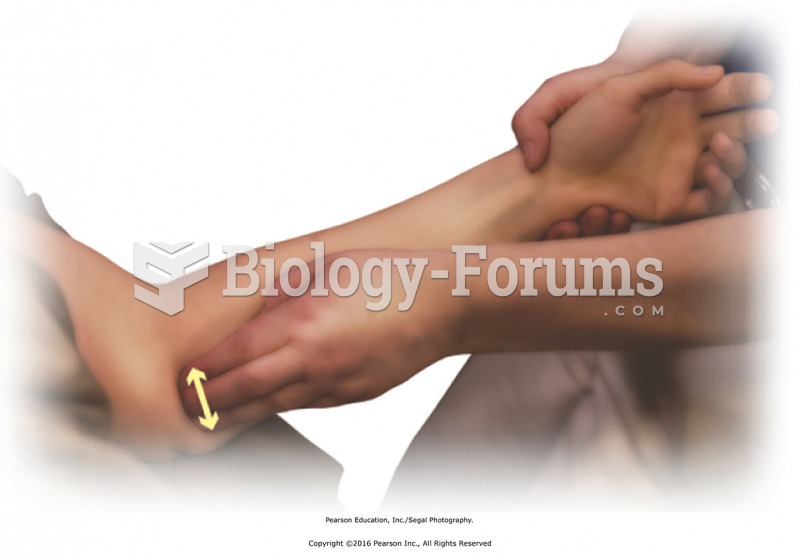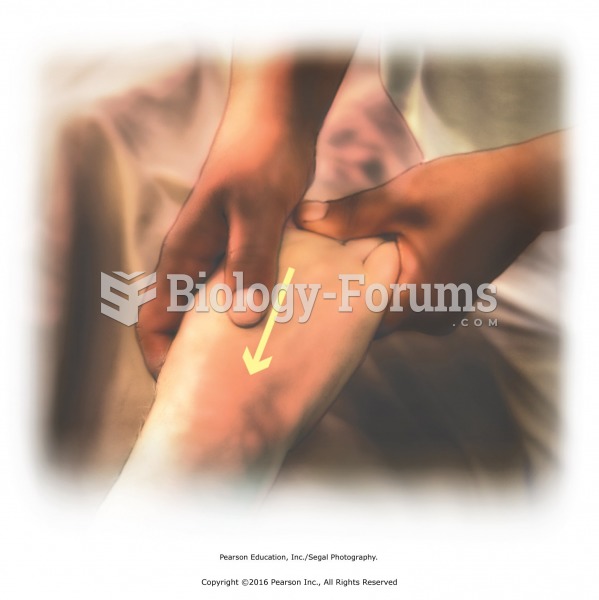|
|
|
Did you know?
The B-complex vitamins and vitamin C are not stored in the body and must be replaced each day.
Did you know?
The U.S. Pharmacopeia Medication Errors Reporting Program states that approximately 50% of all medication errors involve insulin.
Did you know?
Cyanide works by making the human body unable to use oxygen.
Did you know?
Anesthesia awareness is a potentially disturbing adverse effect wherein patients who have been paralyzed with muscle relaxants may awaken. They may be aware of their surroundings but unable to communicate or move. Neurologic monitoring equipment that helps to more closely check the patient's anesthesia stages is now available to avoid the occurrence of anesthesia awareness.
Did you know?
About 100 new prescription or over-the-counter drugs come into the U.S. market every year.
 Apply effleurage over eyelids. Using very light pressure, stroke the closed eyelids with your thumbs ...
Apply effleurage over eyelids. Using very light pressure, stroke the closed eyelids with your thumbs ...
 Apply friction to tendons at the elbow with thumb or fingers. Add stripping effleurage along length ...
Apply friction to tendons at the elbow with thumb or fingers. Add stripping effleurage along length ...





